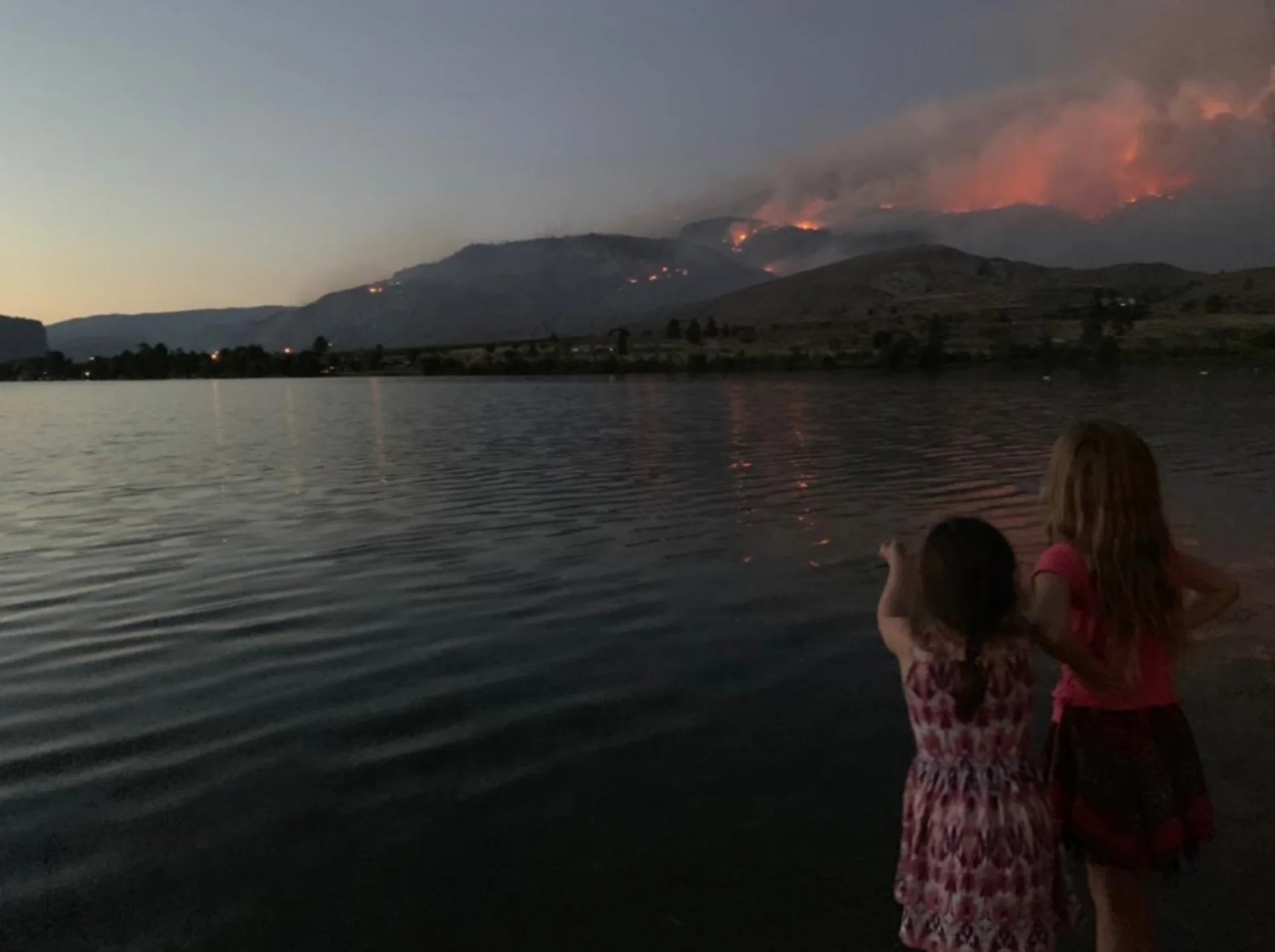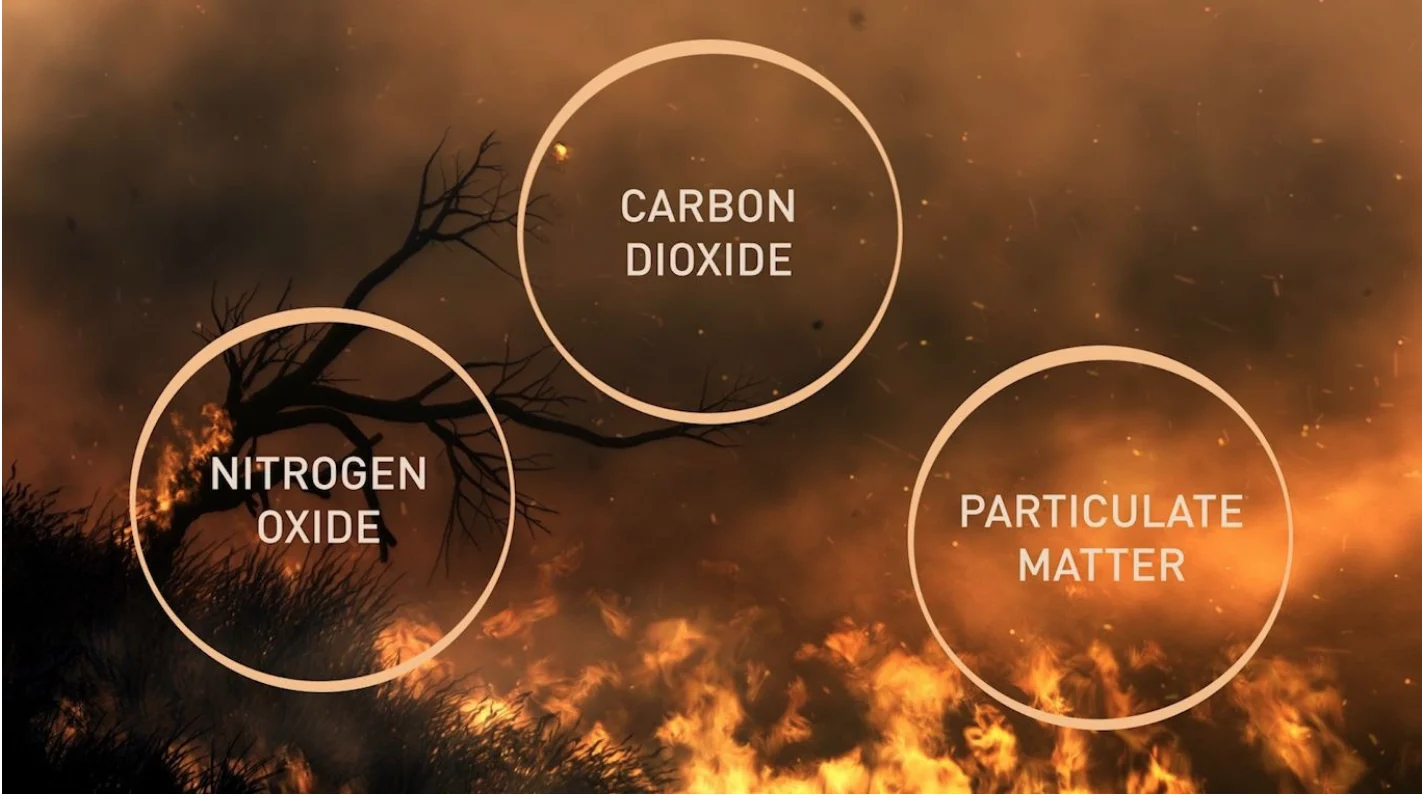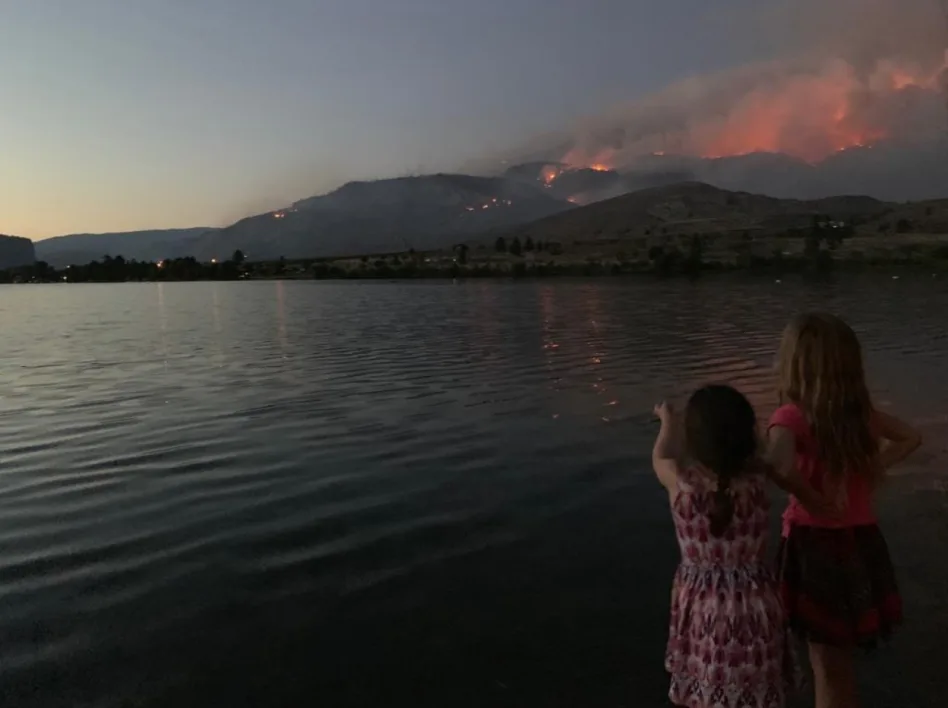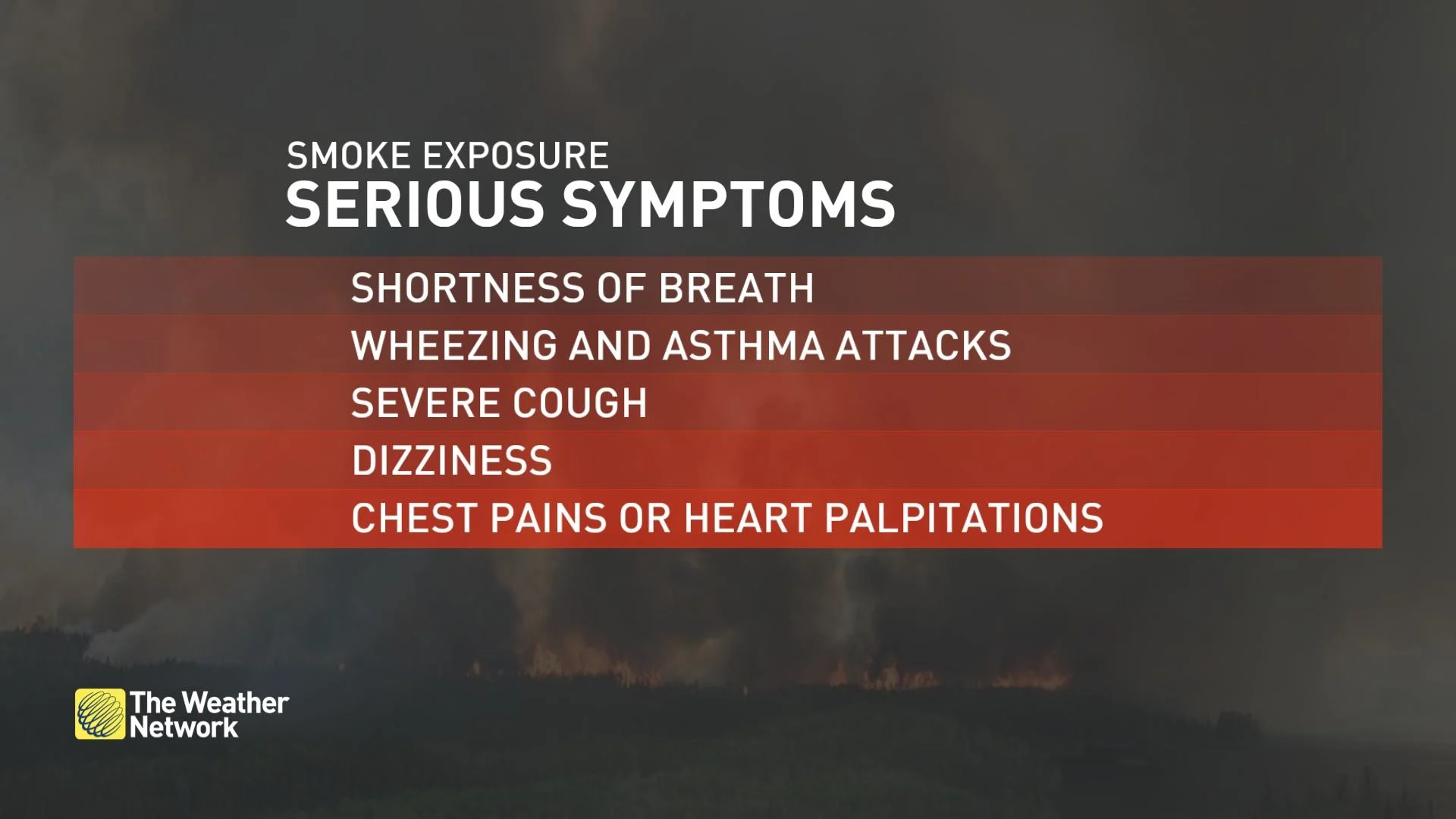
Does breathing in wildfire smoke mean lung issues for life?
Will unbearable heat and fires become a summertime theme in Canada, and if so, what does this mean for our health?
As a fire rages, carbon dioxide, nitrogen oxide, and fine particulate matter enter the air. These extremely tiny particles are referred to as PM2.5, essentially measuring 2.5 microns or less in diameter.
These particles are problematic because they are small enough to enter our lungs and affect the way we breathe. They can even be small enough to enter our bloodstream and lead to inflammation.

LEARN MORE: Visit The Weather Network's wildfire hub to keep up with the latest on the unprecedented wildfire season across Canada.
This is concerning due to the increased exposure North Americans are facing when it comes to wildfire smoke, and researchers are still revealing what the health effects are when it comes to these events.
If we take a look at a few individual fires, the impact on health becomes more apparent. For example, in 2014, Yellowknife was shrouded in smoke for the entire summer. Dr. Courtney Howard, an emergency physician in the area, was able to draw concrete health conclusions from the event.
"We found that we had double the number of emergency department visits over the course of those two and a half months as compared to surrounding years, which is a huge effect," Dr. Howard explains. "We have a small population, so to show a doubling is big. We had a 50 per cent increase in the dispensing of the breathing medication salbutamol from our pharmacies as people came in with asthma symptoms and needed treatment. We also had an increase in visits to our clinics and our emergency department for pneumonia."

(Credit: Dr. Courtney Howard/Submitted)
Another wildfire that Dr. Howard was able to assess was the historic blaze that took over Fort McMurray, Alta., in 2016. She commented on its immense impact on mental health, especially in children, as mass evacuations took over the city.
"We all saw those images; I mean, it was terrifying. And when we examined schoolchildren later, they had really high rates of anxiety, PTSD, and depression, as did some of the adults. So we know that those experiences can be really dramatic and scary."
While we still need more concrete evidence on the harm of breathing in wildfire smoke, some studies have started to reveal interesting facts. A study done in B.C. had researchers monitor how long it would take for one's health to be affected by PM2.5. The results came in after just one hour of exposure. That same study also drew some conclusions about diabetes and exposure to fine particulate matter.

Much of what we know now about health and wildfire smoke can be categorized under immediate effects. What doctors still need to uncover are the long-term effects. As more Canadians experience fire, we wonder: could smoke from one event affect breathing for life?
Currently, Dr. Howard says the best representation in the literature is a study done on monkeys.
"They found that those primates had residual lung function problems for their entire lives after an acute episode. I know that researchers in Australia and British Columbia are going to be doing follow-up studies. But for now, we really don't know what the long-term impacts are of acute exposures to wildfire smoke, especially if they continue to happen more often."
And that's a frightening thought.
Are wildfires happening more often? Will their impact on society and health continue to worsen? The data shows us that "almost 500,000 Canadians were evacuated due to wildfires between 1980 and 2017, and half of these evacuations took place in the last decade alone."
It’s clear that our grip on climate change needs to strengthen if we want to properly battle these wildfire events. As of now, the long-term health risks are to be determined; however, medical professionals know smoky air should be a concern for any population.
To learn more about the potential long term impacts of wildfire smoke inhalation, watch the video above.
Editor's note: This article was originally published in August 2021.











